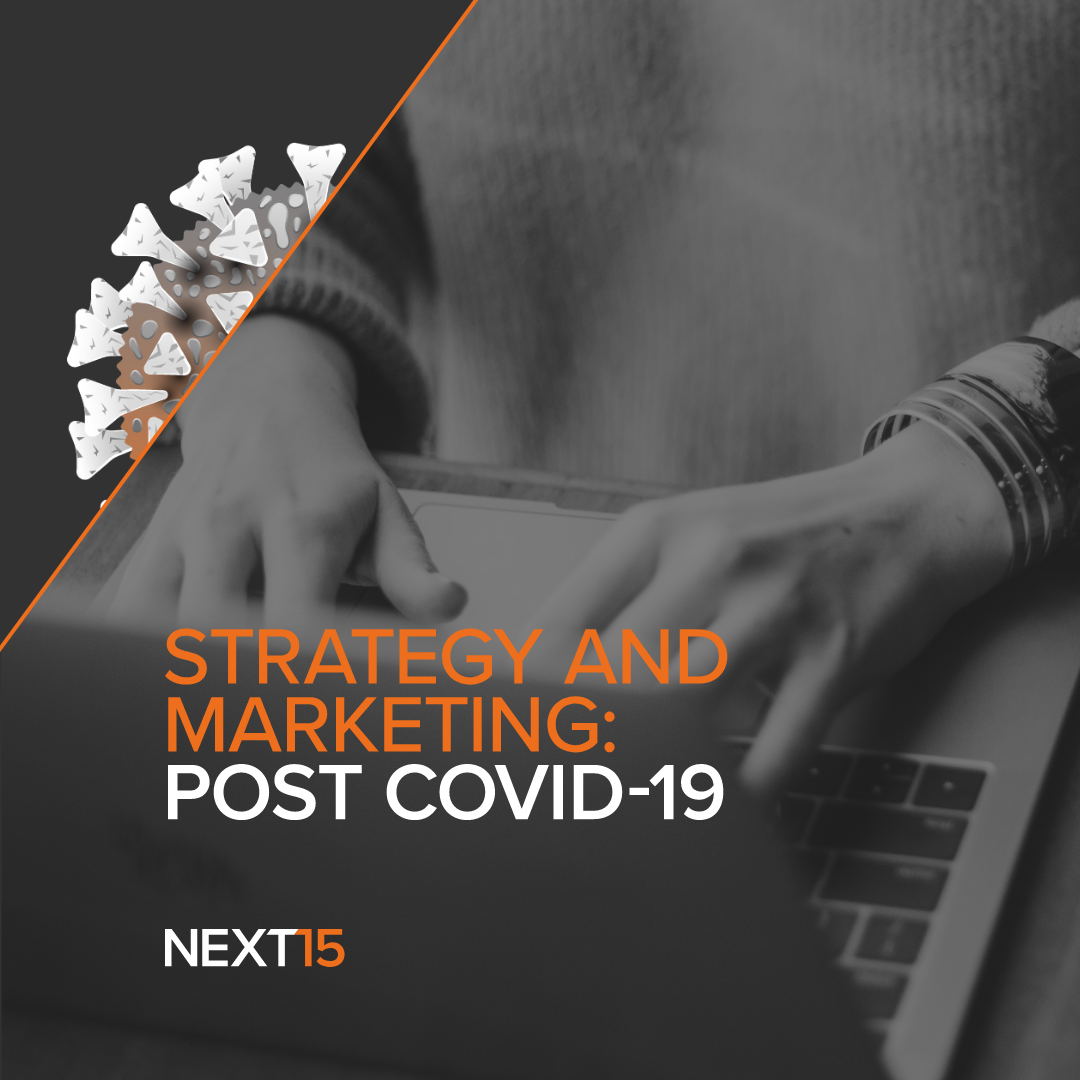






No amount of market research or data driven insights could have predicted the sudden shift in day-to-day operations forced upon businesses this year. Once a novel perk, championed by trendy, forward-thinking companies, COVID-19 has caused working from home to become the norm, and businesses in every sector have had to work to digitise both their offering, and their workforce.
There’s no denying that the effects of COVID-19 have been colossal, and it’s naïve to think that they’ll be short-lived. But while there have been many negatives to the unprecedented events of this year, for the marketing industry at least, there is an upside to being forced to conduct business virtually. Following a recent client report conducted by our parent company, Next15, on the effects of COVID-19, CEO Tim Dyson said: “Overall, despite the dramatic and lasting changes to business models, COVID-19 could be responsible for positively changing the way we all work.”
The report outlines 4 key ways in which clients have been affected by COVID-19, and what the future looks like in these areas from a strategy and marketing perspective.

https://brandwidth.com/wp-content/uploads/2020/10/Strategy-and-marketing-Post-Covid-19.pdf
Nobody doubts that COVID- 19 has had a massive impact on businesses. From the enforced work-from-home trend, to sudden increases and drops in demand and the knock-on-effect on staff – every department of every company everywhere has been forced into unprecedented territory. Every respondent reported that the pandemic has had an impact on their business, with a quarter saying the impact had been positive.
While in many ways we look forward to a future that resembles something close to normality, the research suggests that the changes impacted on businesses are not going anywhere; COVID-19 isn’t just causing businesses to make minor adjustments – it is fundamentally changing how they operate.
But in exactly what ways are things set to change? In the survey, Next15 received responses from over 130 clients about crucial aspects of their organisation to understand the extent to which they expected upheaval in each.
So, how do marketers plan to deal with these changes? Digitisation is a common theme within respondents’ plans for the future, with two topics rising to the top:
It’s clear that while changes were initially enforced by Covid-19, those in strategic and marketing roles see them as being more permanent – due to the opportunities of efficiency that they provide, or the beliefs that customer expectations will shift.
As businesses look at overhauling the ways they work internally, communicate with customers and push their products to market, digital growth is set to be the biggest challenge. Despite digital being a growing trend in marketing for thirty years now, the median response when asked about the proportion of activity currently conducted via digital channels was just 58%. Over the next 12 months, it’s predicted this will jump to 75%, representing a significant shift to a digitally dominated world.
When asked which areas of sales and marketing will be prioritised in light of this new digitisation, content marketing, social media and virtual events came out top.
Interestingly, however, priorities in B2C and B2B marketing differ. While social media and eCRM look to be the top focus points for B2C clients, B2B marketers are prioritising virtual events, lead generation and thought leadership.
Marketing automation is having its moment. The improved efficiency it offers is largely perceived favourably, with nearly two-thirds of respondents saying that technology and automation make their work environment more enjoyable. Positively, marketers see technology as enabling them to be more efficient, rather than taking away from their role, with more than half saying technology makes them more creative.
But, while the stats are mostly positive and 64% of respondents say automation makes the marketing team more strategic, there are some down sides. The report highlights two ways in which marketers say they can’t focus on areas they value: not being involved early in product development and not having the right focus.
These two situations are likely a source of genuine frustration for marketers, who need to continue to fight for their seat at the strategic table to influence the role they play as brand builders.
Another area affected by COVID-19 is the agency-client relationship, and almost a quarter of clients say they’ll be making significant changes to these relationships in the coming year.
This is largely down to a need to reduce numbers, as almost a third expect to consolidate their resourcing. The effect of this change on agencies will be noticed; as businesses scale down and review their need for partners, agencies will need to add skills to their offering in order to become a one-stop-shop.
When asked what would become more important in the coming year when working with suppliers/partners – two of the most mentioned skills were the ability to demonstrate ROI and value, and to make evidenced-based or data-driven decisions.
This suggests an increased focus on data, with businesses looking to their suppliers and agency partners to provide evidence-based solutions. This is one finding that comes as little surprise, for it makes sense that in these uncertain times, businesses are increasingly looking to their partners for genuine insight, based on data and evidence. Agencies need to ensure they are ready to provide both.
The Next 15 report reveals that planned changes will be deep and permanent, leading to genuine business transformation and a re-imagining of fundamental business models and processes. In particular, the sales and marketing function will be forever altered.
Most companies are actively rethinking the way they go to market with products and services, as marketing, communications, and sales activity shifts to the virtual world.
For B2C clients, this means more automation, increased use of eCRM systems, and a reliance on digital media, especially social media. For B2B clients, shifting from physical events and on the road sales teams to virtual forums and entirely digital buyer journeys will be accompanied by an increase in thought-leadership and content marketing.
For agencies, this means a need to be there to support the digital evolution. With a third of companies expecting to consolidate suppliers over the coming year, agencies will have to bolster their approach to ROI along with their data-based decision making. Companies and their agencies will need to align to meet change as true partners.



Connected commerce that scales. We design, engineer, and enable seamless ecosystems that connect channels, people, and performance, and convert across every touchpoint.
Learn more